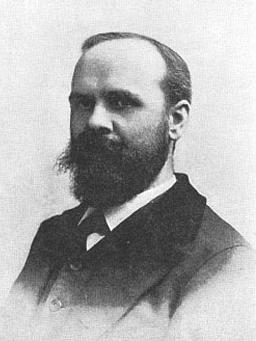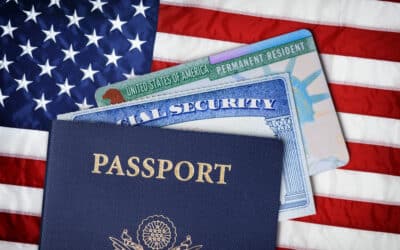The tragic murder of George Floyd at the hands of the Minneapolis Police Department has provoked a national conversation about police—their role in society, their protection from accountability, the unique danger they pose to civil society. That conversation has begun to pose a radical question, one that, if it seems novel, has been explored by libertarians and anarchists for generations1The anarchist communist Albert Meltzer went so far as remarking, “Nobody but the Anarchists wishes to abolish the police,” which is of course not the case.: could we get along entirely without the police, without the set of practices and institutions today associated with them? Put more simply, could we abolish the police?
The True Function of the Police
We might note at the outset that police departments as we know them are conspicuous in their absence from almost all of human history. Indeed, upon the introduction of modern police forces, they were met with suspicion and resistance, regarded as incompatible with traditional freedoms. Policing as we know it emerges only in the modern era, embedded in a broader system of government associated with high modernism. As historian Paul Lawrence observes, Michel Foucault has been perhaps the most influential among those who argue “that the rise of the modern state necessitated a wholesale transformation in the administration of justice,” ushering in “new, bureaucratic criminal justice mechanisms” in which power “functions like a piece of machinery.”2Paul Lawrence, “The Historiography of Crime and Criminal Justice” in The Oxford Handbook of the History of Crime and Criminal Justice, edited by Paul Knepper, Anja Johansen page 22
The professionalization of the police under the modern state tracks “the wider scope of intervention of public authorities” more generally.3“New Threats or Phantom Menace? Police Institutions Facing Crises” by Jonas Campion and Xavier Rousseaux in Policing New Risks in Modern European History edited by Jonas Campion and Xavier Rousseaux) Foucault recognizes the centrality of professional policing in the development of the modern state, the modern state’s rationalistic lust for monitoring and gathering information on the citizen in a systematic way, and the replacement of the tort system by the criminal system.4John C.P. Goldberg and Benjamin C. Zipursky, The Oxford INtroductions to U.S. Law: Torts (OUP 2010). Indeed, we may say that the appearance of the professionalized police force coincides with the full maturity of the state.5Adam Crawford, “Plural policing in the UK: policing beyond the police,” in Handbook of Policing, Tim Newburn, ed. (Routledge 2011), page 147.
And it turns out to be much less than clear that the establishment of professional policing was even intended to protect citizens and their rights rather than “simply provid[ing] a means of state oppression geared to class interests.”6Alan Wright, Policing: An Introduction to Concepts and Practice, Routledge 2013, page 6. Indeed, the history of professional policing is the history of attempts to violently control the marginalized and underprivileged—the history of creating and maintaining parallel legal and judicial systems, with a second class of citizens defined by race and economic station. As Alex S. Vitale writes in The End of Policing, “It is largely a liberal fantasy that the police exist to protect us from the bad guys.” Liberal thought about police is a proxy for their thought about the state and political power more generally, the idea being that their use of force is legitimate and in service to the greater good. As a matter of historical fact, though, the police and the state power they represent have preyed upon the people far more than they have protected them and seem to have been instituted for just those predatory purposes. The primary purpose of government‐operated professional policing has been to enforce social control and discipline through fear and systematic violence, to protect a particular political and economic status quo.
Incentives, Institutions, and Historical Context
Police abolitionists are confronted with the question of how a peaceful society could hope to function and endure without police. But, turned on its head, the question becomes much more interesting: if human beings are in fact so dangerous, so naturally inclined to crime, then the important social theoretic question is not how we could maintain safety without police, but how we could possibly maintain safety with them. After all, with the police system as we know it in the United States, it would seem that we’ve created conditions ideal for abuses of power, for predation and violent crime. Ordinary citizens are, at the very least, not given license to commit crimes, not held above accountability and punishment. But this is exactly how the political and legal systems favor police officers. It is not a bad apple problem; it’s a classic incentive problem, just the kind that we should expect to arise naturally and inevitably from such an inequality of legal status, whereby a comparatively small group is given a carte blanche to use force, even deadly force, in the most arbitrary and abusive ways. If human beings are as naturally prone to wrongdoing and barbarity as we’re assured, then we should expect that especially violent and antisocial people will self‐select into such a system, aware that it will offer them opportunities to get away with viciously brutalizing others. It only stands to reason that anyone inclined to violent behavior and bullying should be uniquely drawn to such an occupation. And, indeed, this is just what we see. We have no reason to think that this system, the system of modern professional policing, should do anything but make ordinary peaceful citizens less safe, subjecting them to unaccountable violence. Ceteris paribus, it’s supporting modern professional policing—not police abolition—that should seem to us extreme, outlandish, unworkable, that should strike us as not seriously accounting for the fact that people may want to hurt others, steal, etc.
Though this analysis is highly suggestive of a general trend, it does not explain the very different data on policing practice in other developed countries, particularly in rich, northern and western European countries. The incentives created by the rules within which police operate, however important, are not the only variables bearing on the functioning of modern police forces. A number of more or less intangible factors also inform this functioning, with a policed population’s confidence in legal and governmental institutions not least among them. We find, for instance, “a broad correlation between trust in others, and trust in the different public institutions.” In many European countries, police don’t even carry firearms, and they’re trained to de‐escalate potentially dangerous situations, with some countries even requiring officers to obtain permission before shooting at a suspect. America’s unique history of racial slavery certainly plays a role in the hostility and violence that marks the relationship between the police and the policed. Americans, particularly American people of color, have little confidence that legal and governmental institutions like the police and the courts will treat them fairly, with wide racial gaps in answers to questions of whether, for example, police are doing a good job or using force appropriately and proportionately.
We ought to note at this juncture that this lack of confidence in institutions, far from being the ill‐founded conclusion of a people committed to perceiving themselves as victims, is in fact consistent with all of the available evidence about the disparate treatment of minority Americans, Black Americans in particular. If it is a cold fact that Black Americans are systematically mistreated by police, the courts, and the criminal justice system generally—and it is — then their distrust in the police simply stands to reason, the natural, appropriate result of a fundamentally unjust and racist system. That polling data suggests Black communities actually want to retain current levels of policing in their local areas points to a paradox: “Although Black Americans seem about as comfortable as Americans overall with the amount of police presence where they live, they differ markedly in their perceptions of how their local police might treat them if they were to interact.” Black Americans, apparently because they perceive their own neighborhoods as dangerous, don’t want to see the cops abandon them entirely, but neither do they trust them without reservations.
Because Black Americans have, for generations, seen their families destroyed by a police and prison system that continues directly from the Jim Crow system in the South, we must consider these phenomena—police and prisons—in tandem. As Maya Dukmasova noted in 2016, “The idea of police abolition can’t be understood separately from the wider prison abolition movement.” The call for prison abolition responds to the fact “that prisons can’t be reformed, since the very nature of prisons requires brutality and contempt for the people imprisoned,” that the whole edifice must be dismantled and substituted with new models based on an entirely new way of thinking about and discussing crime, reconciliation, and community. The police and prison systems are practically and historically inextricable, and the entire system of American policing and prisons is predicated, as Angela Davis observes, on “racialized assumptions of criminality,” which themselves follow directly from the country’s history of slavery (critics of the U.S. police and prison system have frequently noted the historical connection between modern policing and slave patrols). Prison systems in other advanced nations, particularly in some of the places we have already mentioned, are significantly different in both the level of comfort afforded the imprisoned and their underlying goals. In incremental moves toward outright abolition, Americans should look to these countries’ prison systems as waypoints in the road to freedom from prison and its warped ideologies. When we consider whether we ought to abolish the police and begin to establish peaceful, community‐driven alternatives, it is not an idealized hypothetical of peace and justice that we should envision, but a reality of centuries‐deep injustice along racial lines, an authoritarian reality of police brutality and mass incarceration. Accordingly, we should look honestly at the nature of police work: as so many others have observed, actual police work is quite unlike what most Americans—particularly conservatives, vocally supportive of police officers—imagine it to be. Importantly, it is far less dangerous than cops lead us to believe, characterized by long stretches of boredom, with only the very rare call to respond to a report of violent crime. On‐duty police deaths have been on a steady decline for decades, with police officers being “many times more likely to commit suicide than to be killed by a criminal.” According to a 2019 report from the Vera Institute of Justice, less than 5% of arrests are made in connection with serious violent crime. The propagandistic “thin blue line” narrative, which casts police officers as embattled and underappreciated heroes, just doesn’t square with the empirical reality of policing.
Replacing—Not Remaking—The Police
The question now arises: what will replace the police? The short answer is nothing. The police don’t need replacing and should not be replaced or recreated. Anarchists and libertarians foresee a variety of spontaneously‐emerging, decentralized answers to the question of crime, recognizing, as Benjamin R. Tucker observes, that the state is “the chief invader of person and property” and “the cause of substantially all the crime and misery that exist.” It is important to remember that the burden is not on police abolitionists, who ask only for an end to a very violent, dangerous species of special privilege, one that has resulted in almost unimaginable injustice and disrupted the very balance of American society. Tucker’s social and economic determinism, inherited from Josiah Warren, is apparent in his argument that the state’s creation and sustainment of privileges functions to “disperse poverty and ignorance among the masses,” creating inequality that is “directly proportional” to levels of crime.7Tucker writes, “[Our prison] are filled with criminal which our virtuous State has made what they are by iniquitous laws, its grinding monopolies, and the horrible social conditions that result from them. We enact many laws that manufacture criminal, and then a few that punish them.”
Individualist anarchists (and, later, anarcho‐capitalists like Murray Rothbard) have advanced a system in which defensive associations would compete with one another in a legitimate free market to provide protection against theft, murder, and other crimes recognized by libertarians (that is, crimes with victims). Sketching this individualist anarchist system in his book Voluntary Socialism, Francis Dashwood Tandy argues, like Tucker, that “solv[ing] the economic problem,” that is, abolishing monopoly and the special privilege upon which it is founded, would “trim the claws of private enterprise,” rendering competition socially beneficial. For Tandy, genuine competition is the mechanism that ensures accountability, there being no fundamental reason that there couldn’t be, quoting Tucker, “a considerable number of defensive associations … in which people, even members of the same family, might insure their lives and goods against murderers and thieves.” Such a system grants no extra rights or privileges, but is rather one in which each individual is merely outsourcing her individual right to self‐defense. Where the state arbitrarily grants new rights—more accurately, privileges—to specially appointed people, whose badges give them the power to murder with impunity, a libertarian system of competing defense associations would mean only the delegation of a right every individual already possesses, nothing further. Whether such a system of competing defense agencies amounts to police abolition is, of course, a point of contention; many, probably most, anarchists (including Meltzer, mentioned above) would contend that the competing defense agencies of Gustave de Molinari, Tucker, and Tandy nowise represent the genuine abolition of police, but only a capitalist recreation of the injustices we find today.
Conclusion
Where libertarians part sharply from the left (the rest of the left, perhaps), is in the Jacobin left’s unthinking worship of the total state, which, at bottom, is just police—as every law or stricture must be enforced by police. Libertarians are more careful and historical in their thinking, more systematic: we can’t believe that a state like the one contemplated by modern‐day Jacobins could be anything but a Nazi Germany, a Fascist Italy, a Communist China, a Soviet Russia, that is, a full‐blown police state. Libertarians believe the move in the direction of a free society must be based on a proper understanding of libertarian ideas—that is, that the abolition of police is one part of a broader whole. Recognition and respect for the ideas precedes any practical or policy change, as it must. Libertarians should engage with the police abolitionism conversation from this standpoint, that ideas are primary and a proper recognition of the worth of every individual must be at the foundation of sweeping change.
This article was originally featured at Libertarianism.org and is republished with permission.
































